
“War is peace. Freedom is slavery. Ignorance is strength.”
An enduringly relevant voice, bequeathing lasting terms like “doublethink,” “thought police,” and “Big Brother”, Orwell’s legacy rests on his unwavering commitment to truth and justice. A shining anti-authoritarian voice, exposing societal ills, and championing individual freedom, Orwell’s work serves as a potent reminder of the dangers of totalitarianism and the importance of critical thinking. Introducing you to his essential writings, traversing worlds both fictional and non-fictional, this list showcases the best of Orwell and his brilliant discernment of the varied manipulative machinations that aspire to oppress modern man. Because as we say at Kunzum, it’s the way you think!
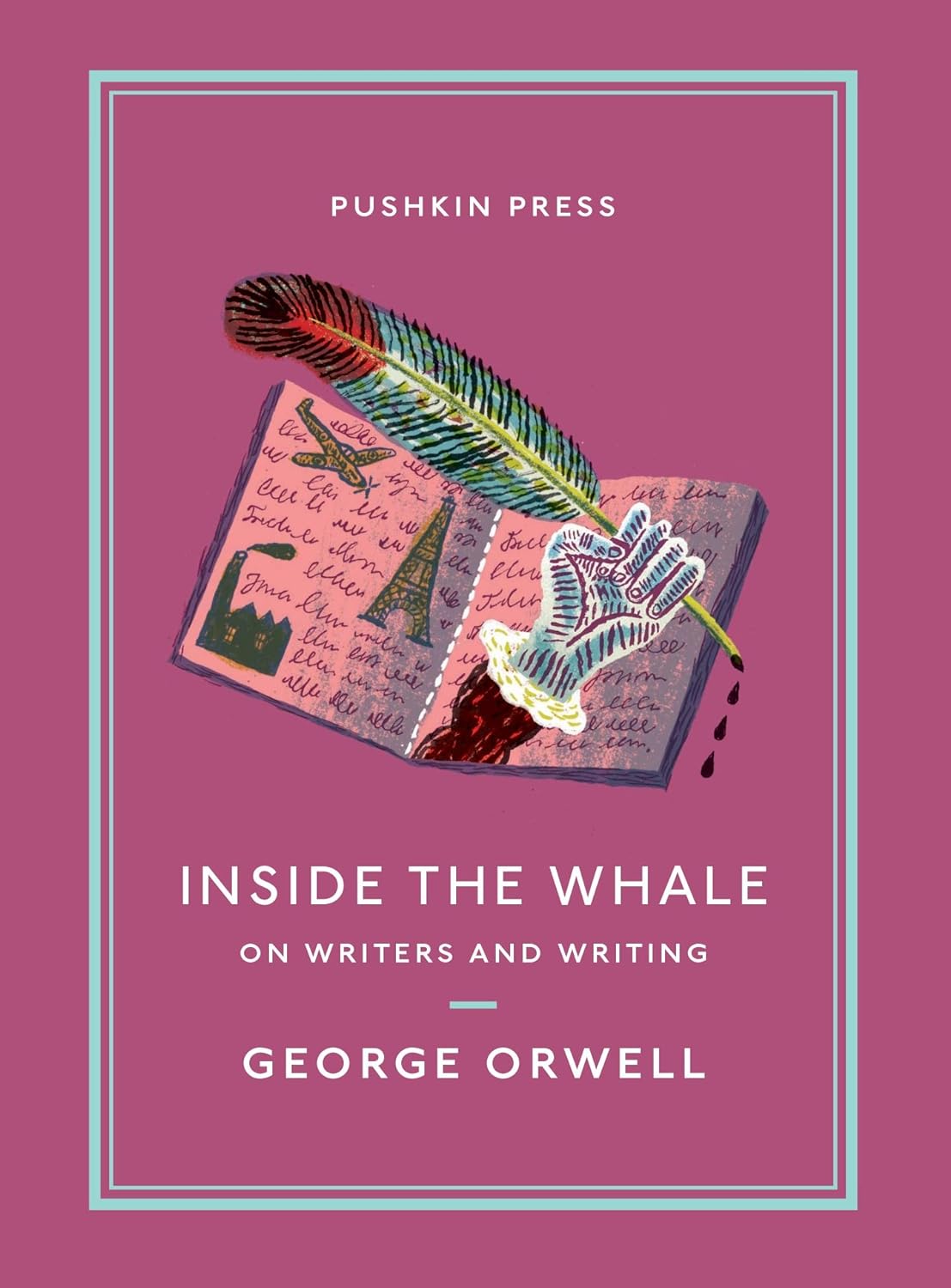
Inside the Whale By George Orwell
In “Inside the Whale,” George Orwell uses the biblical tale of Jonah to analyse the literary landscape of the 1920s and 30s. While reviewing Henry Miller’s “Tropic of Cancer,” Orwell explores the tendency of some writers to escape reality, seeking comfort within a self-imposed artistic “whale.” He criticises this “Jonah complex” and argues for a literature that engages directly with the social and political issues of the time. This essay collection remains relevant, prompting readers to question the role of art and artists in a complex world.
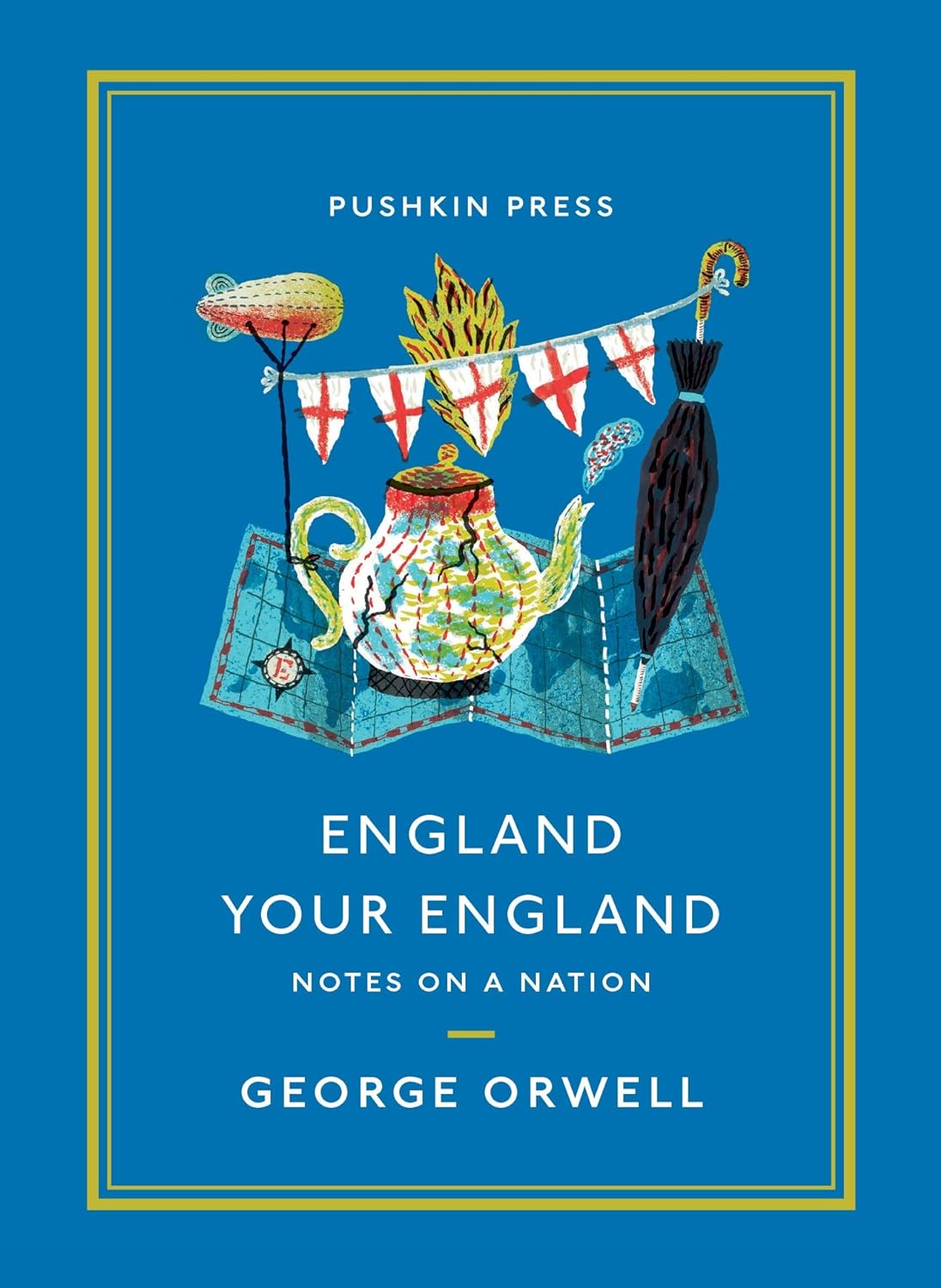
England your England By George Orwell
Written during the Blitz, “England Your England” is George Orwell’s attempt to capture the essence of England and its people. He portrays England as a flawed yet enduring family, deeply patriotic but lacking a clear worldview. Despite criticising class disparity and a dishonest press, Orwell expresses unwavering faith in England’s resistance against fascism, believing its “decent ordinary people” will prevail.

Keep the Aspidistra Flying
In “Keep the Aspidistra Flying,” George Orwell follows Gordon Comstock, a rebellious bookseller’s assistant in 1930s London. Despite the suffocating “money world” and its symbols, like the ubiquitous aspidistra plant, Gordon struggles to live a life of poverty and artistic integrity. As his romantic and financial prospects dwindle, he faces a harsh choice: remain true to his ideals or succumb to the very pressures he loathes. The novel offers a scathing commentary on societal pressures and the compromises one faces in life’s pursuit of authenticity and fulfilment.

Homage to Catalonia
“Homage to Catalonia” chronicles George Orwell’s disillusioning experiences fighting for the Republican side in the Spanish Civil War. He initially found Barcelona thrilling, imbued with revolutionary spirit. But as a soldier in the trenches, he faced boredom, poor supplies, and the brutality of war. Orwell’s idealism waned further when he witnessed political infighting fracture the Republican front, culminating in his own persecution. The book, though a testament to the initial hope, serves as a poignant reminder of the war’s destructive complexities and his own shifting political perspective.
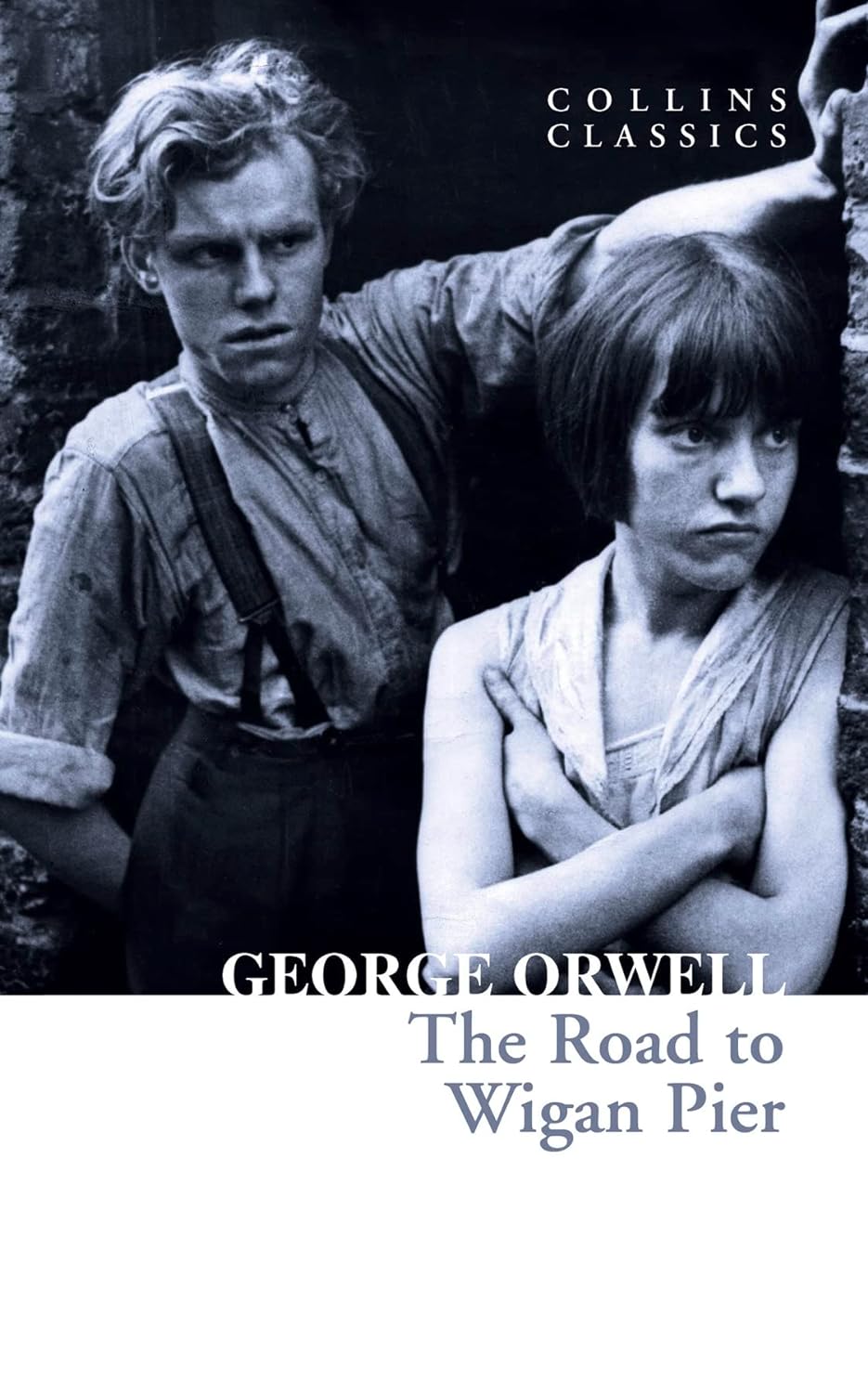
The Road to Wigan Pen
In “The Road to Wigan Pier,” George Orwell dives headfirst into the harsh realities of working-class life in 1930s England. He doesn’t just observe; he lives alongside miners and their families, experiencing firsthand the poverty, squalor, and despair plaguing the north. The book is a powerful indictment of social injustice and a passionate plea for change. But it’s not just a sociological study. Orwell also grapples with his own political awakening and questions the challenges and shortcomings of socialism as a potential solution.
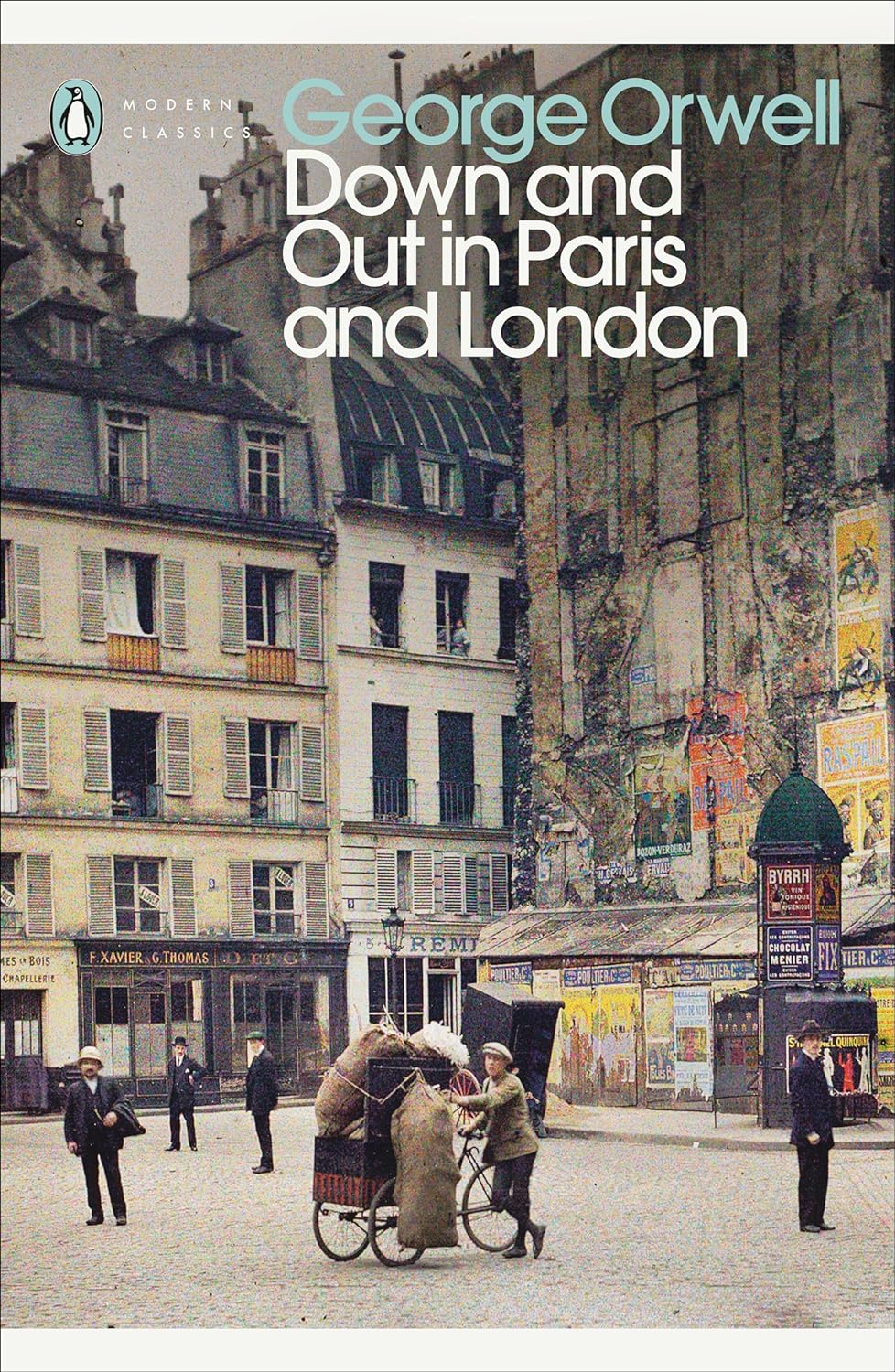
Down and Out in Paris and London
George Orwell’s “Down and Out in Paris and London” is a semi-autobiographical journey into poverty. It follows the unnamed narrator’s struggles in both cities, working as a dishwasher in Parisian restaurants and as a tramp in London. Through his experiences, Orwell exposes the harsh realities of life on the margins, revealing the camaraderie and desperation among those who have fallen through society’s cracks. The book, published in 1933, is a stark and insightful look at class and inequality, delivered with Orwell’s signature honesty and wry humour.

Burmese Days
Set in colonial Burma, George Orwell’s “Burmese Days” depicts a world of prejudice and corruption. John Flory, a white timber merchant, struggles with his conscience. He despises the racist attitudes of his fellow Brits and yearns for connection with the Burmese people. Drawn to a young woman and a progressive doctor, Flory attempts to break free from the oppressive social norms, yet his choices lead him down a tragic path, exposing the brutal realities of colonialism and the human cost of prejudice.

1984
In George Orwell’s dystopian masterpiece, “1984,” Winston Smith, a low-ranking member of the oppressive Party, yearns for freedom and truth in a world under constant surveillance by the omnipresent Big Brother. The Party controls everything, rewriting history, manipulating language, and crushing any form of individuality or rebellion. Winston embarks on a forbidden love affair and engages in a dangerous act of rebellion, only to face the horrifying consequences of defying the totalitarian regime. This chilling novel serves as a timeless warning against the dangers of totalitarianism, mass surveillance, and manipulation of truth.
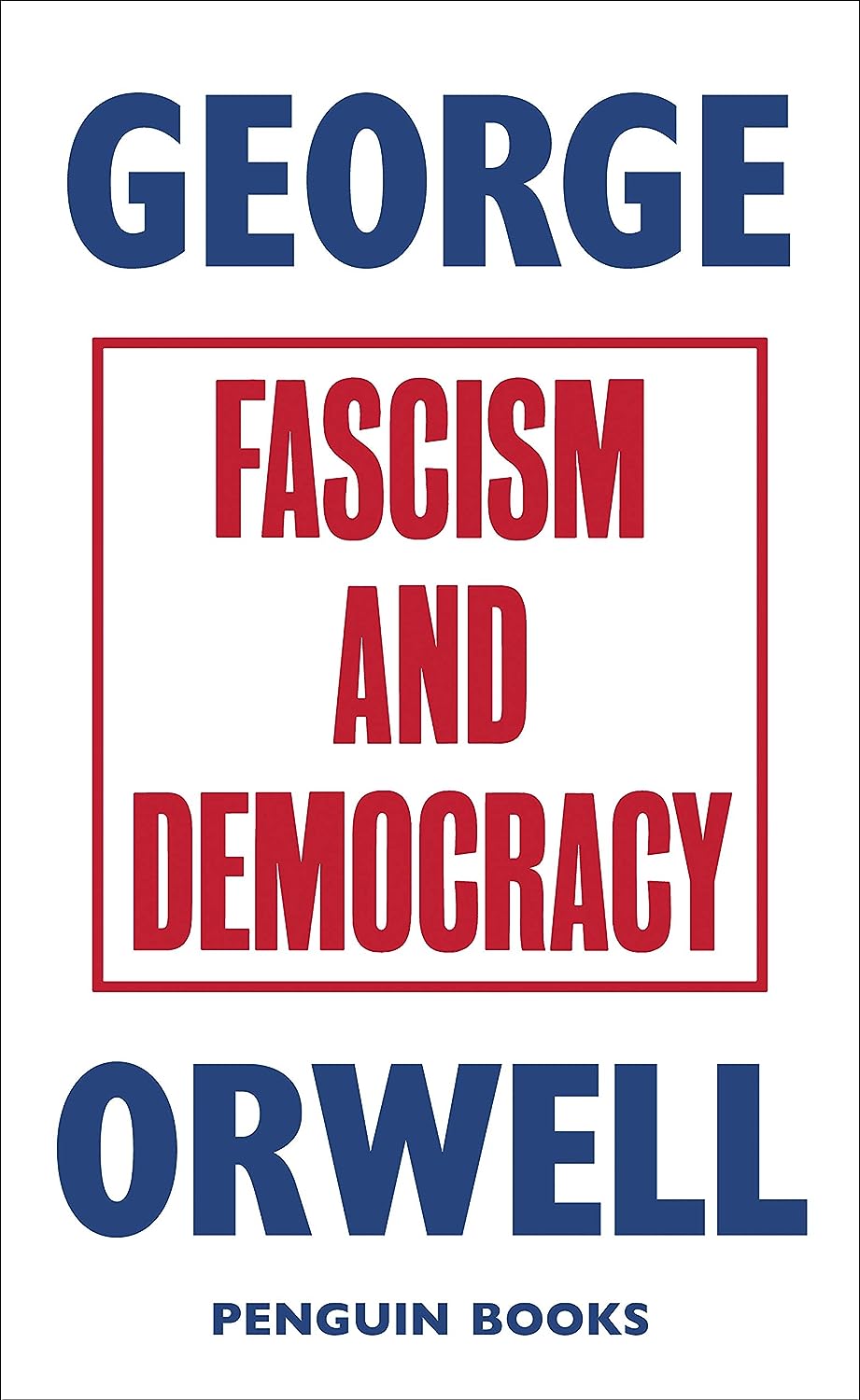
Fascism and Democracy
George Orwell’s essay “Fascism and Democracy” doesn’t delve deeply into defining these terms, but rather examines the blurring lines between them in his time. He observes how governments, even those claiming democracy, can adopt elements of fascism, like manipulating language and suppressing dissent, raising concerns about the true meaning and future of these political systems. Preserved as a skinny pamphlet, it packs the explosive power of Orwell’s precise and indicting words.
Pick up a book by George Orwell from any Kunzum store or WhatsApp +91.8800200280 to order. Buy the book(s) and the coffee’s on us.
